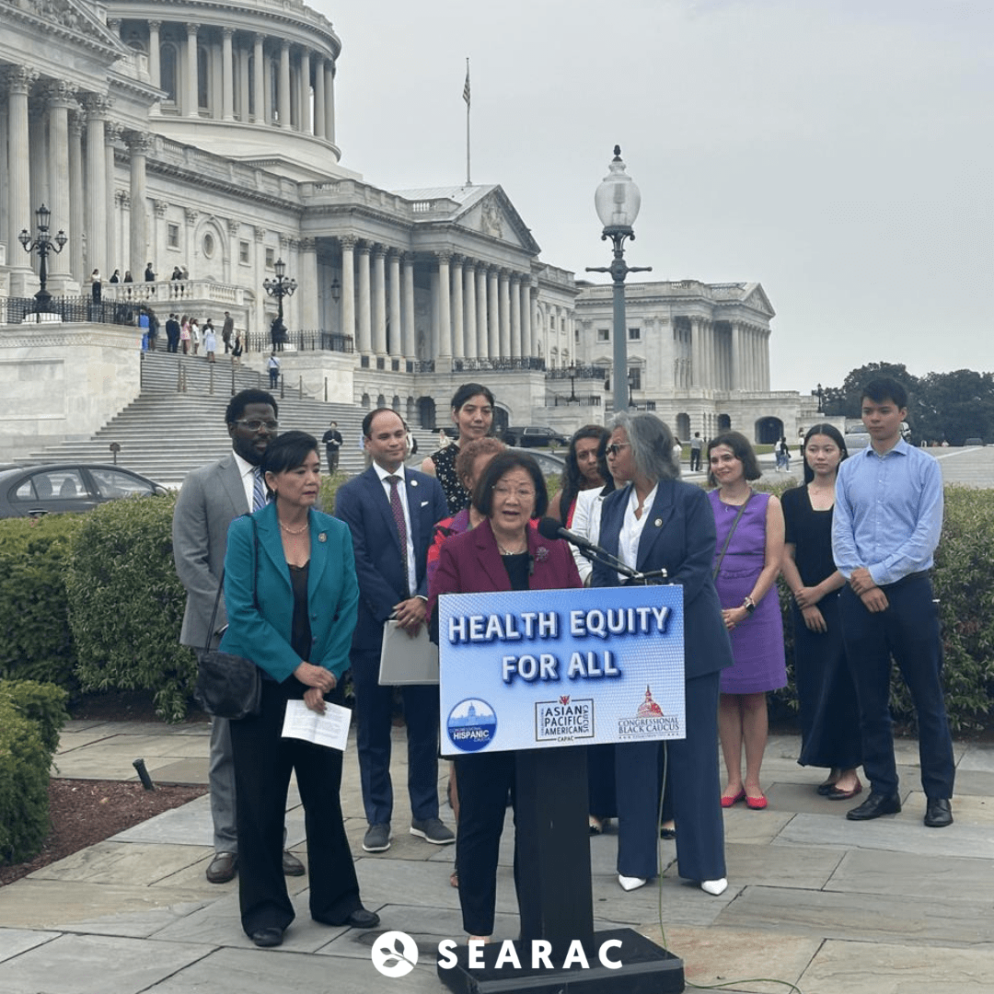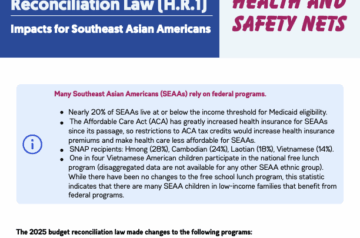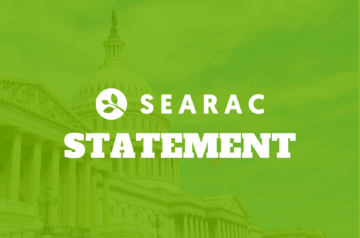Washington, DC – Today, US Sen. Mazie K. Hirono (D-HI), US Rep. Barbara Lee (D-CA 12), and US Rep. Judy Chu (D-CA 28), chair of the Congressional Asian Pacific American Caucus reintroduced the Health Equity and Accountability Act (HEAA) of 2024. This comprehensive bill would improve health care for diverse communities of color by increasing culturally and linguistically appropriate services, disaggregating health data, supporting mental health, and addressing holistic health.
HEAA would have helped families like Lasamee Kettavong’s. Three years ago, Lasamee lost her father due to COVID complications. He had been living in a nursing home, away from Lasamee and her siblings, because his untreated, complex post-traumatic stress disorder did not allow him to live in the care of his five children.
“The Health Equity and Accountability Act is important to me because certain parts of this story were preventable, and the factors that led to the circumstances of my father’s death go far back,” said Lasamee, who also serves as program manager at the Laotian American National Alliance. “Culturally and historically, Lao people had different understandings of mental health or illness and how to treat it. Even if we did, we likely would not have been able to access in-language mental health care. Not only did my father suffer mentally, he also faced continued isolation in any care facilities that he was in due to language barriers.”
“SEARAC has long endorsed the Health Equity and Accountability Act as an important means for improving health care for underserved communities, including for Southeast Asian Americans (SEAAs),” said Quyên Đinh, Executive Director of SEARAC. “The traumatic experiences of war, genocide, and displacement have physically and mentally harmed generations of Southeast Asian refugees, their children, and families. We must sufficiently fund and equip US health care systems to assist SEAA communities in their healing, and our families and elders must be able to access quality, culturally and linguistically appropriate care. We thank Rep. Lee and the Congressional Tri-Caucus for this year’s reintroduction and urge Congress to advance this bill.”




